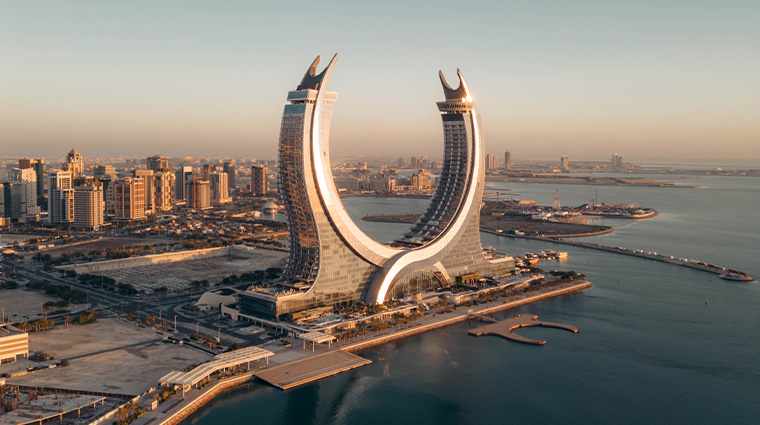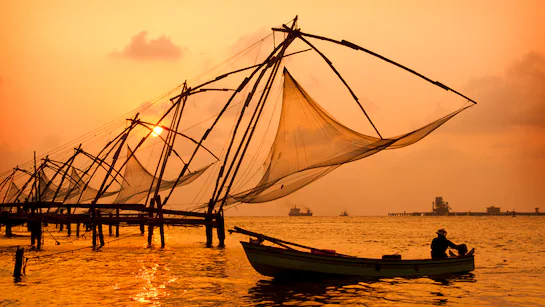This comprehensive post offers expert insights and actionable tips for a memorable Swiss adventure.
Why Switzerland Should Top Your Travel List
Switzerland is a stunning kaleidoscope of pristine lakes, rugged alpine peaks, charming medieval towns, and vibrant cities. With a blend of four cultures and languages, it offers more than just postcard views—it’s an experience rich in diversity and elegance.
From adrenaline-pumping outdoor activities to serene lakeside moments, this guide provides everything needed to navigate your Swiss trip with confidence and style.
11 Best Places to Visit in Switzerland with Insider Tips
1. Jungfrau Region – The Crown Jewel of the Alps
The Jungfrau region is a spectacle of snowy summits and lush valleys. Lauterbrunnen Valley alone boasts over 70 waterfalls, making it a magical spot for hikers and photographers. I’ve personally marveled at the Eiger’s north face while sipping hot chocolate in Grindelwald – simply unforgettable.
Must-do: Take the Jungfraujoch train to the “Top of Europe,” offering breathtaking views of Aletsch Glacier.
Stay: Cozy mountain lodges in Wengen or luxury hotels in Interlaken.
Typical cost: Mid-range to luxury; expect around CHF 150-300 per night. Budget travelers will find hostels and guesthouses.
Best time to visit: Summer for hiking, winter for skiing, and spring for waterfalls at peak flow.
2. Bern – A Timeless Capital
Bern’s UNESCO-listed Old Town is like stepping back in time with its cobbled streets, medieval towers, and the iconic Zytglogge clock. The Aare River offers summer swimming opportunities and makes for a picturesque urban escape. I enjoyed wandering the arcades and discovering the Einstein-Haus where relativity took shape.
Must-see: Old Town arcades, Bear Park, and Zentrum Paul Klee museum.
Stay: Charming boutique hotels or riverside guesthouses.
Typical cost: CHF 120-250 per night depending on comfort and location.
When to go: Late spring and summer for pleasant weather and river activities.
3. Geneva – A Global City by the Lake
Geneva’s cosmopolitan vibe blends with stunning views over Lake Geneva and the Swiss Alps. Check out the Jet d’Eau fountain, the vibrant Old Town, and the Palais des Nations. I often find the lakeside promenades perfect for reflection and people-watching.
Must-do: Boat cruise on Lake Geneva, visit the International Red Cross Museum.
Stay: Lakeside luxury hotels or well-connected city center accommodations.
Typical cost: Higher-end city; budget CHF 200+ per night.
Best time to visit: Late spring to early fall for lake activities and festivals.
4. Zermatt – Gateway to the Matterhorn
Zermatt is pure alpine magic at the foot of the iconic Matterhorn. This car-free village offers skiing, hiking, and breathtaking panoramas. Staying here means waking up to one of the world’s most famous mountain views, a sight I never grow tired of.
Must-do: Take the Gornergrat Railway for panoramic vistas and visit the Matterhorn Museum.
Stay: Alpine lodges, boutique hotels, or luxury resorts.
Typical cost: CHF 150-500 per night depending on luxury level.
Best season: Winter for skiing, summer for hiking and mountain biking.
5. Swiss National Park – Nature at its Purest
Switzerland’s only national park offers untouched alpine landscapes, native wildlife, and marked trails through meadows and rocky terrain. It’s a haven for nature lovers and hikers seeking peaceful solitude. Personally, exploring the park brought me closer to everything wild and wonderful about the Swiss outdoors.
Must-see: Hiking routes from Zernez, wildlife spotting including ibex and marmots.
Stay: Nearby inns or mountain huts.
Typical cost: Budget to mid-range, CHF 80-200 per night.
When to go: Summer and early fall, as park access can be limited in winter.
6. Lake Lucerne – The Heart of Swiss Scenery
Lucerne combines rich history with spectacular lake and mountain scenery. The famous Chapel Bridge and Old Town are photographic highlights, while boat cruises across Lake Lucerne reveal fairy-tale landscapes. I found the blend of cultural charm and natural beauty irresistible.
Must-do: Boat tour on Lake Lucerne, visit Mount Pilatus or Rigi for hikes and panoramas.
Stay: Lucerne city hotels offer convenience and scenic views.
Typical cost: CHF 150-300 per night.
Best season: Summer for lake activities, winter for snowy mountain excursions.
7. Interlaken – Adventure Capital
Interlaken is a hotspot for thrill-seekers with activities like paragliding, skydiving, and canyoning. Situated between Lake Thun and Lake Brienz, it’s a perfect base for alpine adventure. I recommend grabbing a spot at Harder Kulm for legendary sunset views over the Jungfrau region.
Must-do: Paragliding experience, boat rides on the lakes.
Stay: Outdoor lodges, hostels, and luxury hotels available.
Typical cost: CHF 100-350 per night.
Best time: Late spring to early autumn; winter for skiing nearby.
8. Montreux & Château de Chillon – Lakeside Elegance
Montreux, set on Lake Geneva’s shores, is famed for its jazz festival and scenic walks. The nearby Château de Chillon is one of Switzerland’s most picturesque castles. Walking through its stone halls gave me a vivid sense of Swiss history.
Must-see: Château de Chillon, lakeside promenade, and seasonal festivals.
Stay: Lakeside hotels in Montreux offer luxury and charm.
Typical cost: CHF 180-400 per night.
When to visit: Summer for festivals, spring for floral displays.
9. Zurich – Switzerland’s Urban Gem
Zurich’s vibrant cultural scene, elegant shopping streets, and pristine lakefront make it a city you can’t miss. I enjoyed exploring its art museums and cafes, alongside lakeside strolls framed by mountain views.
Must-do: Visit Kunsthaus Zurich, explore Bahnhofstrasse, and enjoy Lake Zurich cruises.
Stay: City center hotels and boutique guesthouses.
Typical cost: CHF 150-350 per night.
Best season: Spring to fall for outdoor cafes and festivals.
10. Bellinzona – Swiss Castles and Italian Charm
Bellinzona is home to three majestic medieval castles and a distinctly Italian atmosphere. Exploring these fortifications gave me a deep appreciation for historic architecture and local culture.
Must-see: Castelgrande, Montebello, and Sasso Corbaro castles.
Stay: Quaint inns and small hotels.
Typical cost: CHF 90-180 per night.
Visit: Spring to autumn for outdoor exploration.
11. Lausanne – Lakeside Culture and Nightlife
Overlooking Lake Geneva, Lausanne combines culture, nightlife, and a youthful vibe thanks to its university crowd. Walking the Olympic Museum and lakeside paths offers a blend of education and relaxation.
Must-do: Olympic Museum, Ouchy waterfront, and vibrant old town streets.
Stay: Stylish city hotels and lakeside apartments.
Typical cost: CHF 140-270 per night.
Best time to visit: Spring and summer for festivals and lake activities.
Essential Travel Tips for Switzerland
How to Stay Safe
Switzerland boasts very low violent crime rates, but petty theft like pickpocketing can happen in busy tourist areas such as Zurich and Geneva train stations. Always stay vigilant with your belongings, especially in crowded places. The Swiss public transport system is safe and extremely reliable; however, keep an eye on luggage in major stations.
In mountains, check weather forecasts, wear proper hiking gear, stick to marked trails, and inform someone about your route. Winter sports lovers should always ski on marked slopes and wear helmets to prevent injuries.
Where to Stay
Accommodations range from luxury alpine resorts and lakeside hotels to budget hostels and charming bed and breakfasts. Booking in central locations or close to transport hubs will maximize your exploration time. For a unique experience, consider mountain lodges or quaint village guesthouses.
Typical Costs and Budgeting
Money-saving tips: Use regional Swiss Travel Passes for unlimited transport, plan trips in shoulder seasons for better rates, and enjoy picnic lunches from local markets to reduce meal costs.
Getting Around Switzerland
Switzerland’s transport network is a model of precision and convenience. Trains connect nearly every town and village with scenic routes like the Bernina Express. Buses, boats, and regional trams complement travel options. Renting a car is possible but can be pricey and challenging in winter weather. For urban travel, trams and bikes are accessible and eco-friendly.
When and How to Get There
Switzerland is well-served by international airports in Zurich, Geneva, and Basel, providing direct flights from most global hubs. Traveling by train from neighboring countries offers a scenic and eco-friendly alternative. The best time to visit depends on activities: summer for hiking and lakes, winter for skiing and festive markets. Shoulder seasons like spring and autumn can offer fantastic deals and less crowded sites.
Recommended Tour Experiences
Guided tours add local expertise and ease your itinerary. Popular options include the 12-day Best of Switzerland tour, scenic Bernina Express trips, and private guided hikes in the Alps. For a picturesque day trip, try exploring Rhine Falls or Château de Chillon with local guides.
Suggested Length of Stay
To get a rich taste of Switzerland’s highlights, allocate 10 to 14 days. This allows time to enjoy mountain regions, cities, lakesides, and cultural sites without rushing. For a shorter trip, focus on one region like the Bernese Oberland or Lake Geneva area for an immersive experience.
Personal Insights & Pro Tips from a Swiss Explorer
Emergency contacts:
112 – General emergency, 117 – Police, 118 – Fire brigade, 144 – Medical emergencies.
Pros: Unmatched natural beauty, top-notch safety, efficient transport, cultural diversity.
Cons: Can be costly, language variety might pose communication challenges, weather can change quickly.
Frequently Asked Questions
What’s the best time to visit Switzerland?
Summer (June to September) is ideal for hiking and lakes, while winter (December to March) is perfect for skiing. Shoulder seasons offer fewer crowds and better deals.
Is Switzerland expensive for tourists?
Yes, Switzerland is known for being expensive. Budget travelers should plan carefully using passes, local markets, and budget accommodations.
How do I get around Switzerland efficiently?
Utilize the Swiss Travel Pass for unlimited travel on trains, buses, and boats. Public transportation is timely, safe, and extensive across the country.
Are guided tours worth it in Switzerland?
Absolutely. Tours provide rich local insights, easy logistics, and access to hidden gems, enhancing your experience considerably.
What are safety tips for visiting Switzerland?
Keep your belongings secure, especially in busy tourist areas. Check local weather for outdoor plans. Stay on marked trails and follow safety advisories for sports and hiking.




